The medical world is ever-changing. Technology currently plays a significant role in the medical field.
You can now receive medical treatments or information previously unavailable due to the technological benefits of the telemedicine strategy.
Telemedicine is now easier to access, especially for those who may not consider themselves computer-literate.
This practice has been almost as long as telephones, but it has grown in popularity and utility during the Covid-19 pandemic.
As telemedicine has risen in popularity, professionals and patients have gotten more at ease communicating electronically.
What is Telemedicine?
Telemedicine refers to the capability of healthcare providers to consult with patients over the phone or via video. It is to improve a person’s health.
It is advantageous to both fitness and convenience. More medical professionals are offering to “see” patients via computer or smartphone. Telemedicine can help you and your doctor communicate more effectively.

How does telemedicine help doctors and patients?
Doctors and patients can utilize telemedicine to:
• Determine whether the patient requires in-person therapy
• Deliver specific types of medical care, such as mental health treatment and minor infection assessments.
• Make prescriptions or renew them
• Provide specific therapies such as speech and physical therapy
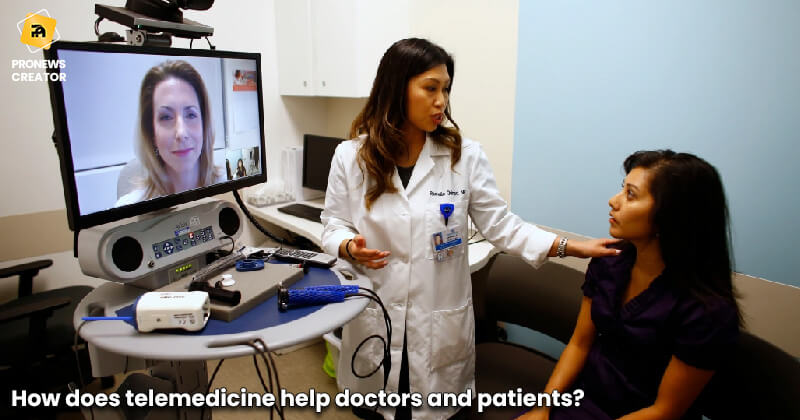
Rundown of the 16 benefits of telemedicine
There are numerous benefits of telemedicine, whether talking about practitioners or Telehealth benefits for patients. Both parties gain from technology, which allows them to go to their appointments while remaining in their comfort zones.
1. Less expensive
Even with adequate health insurance, doctors and therapists can be costly. Telemedicine appointments are often less expensive than in-person consultations. It lowers out-of-pocket payments and removes a barrier to care.

2. More rapid testing
If additional testing, such as bloodwork or an MRI, is required, the patient is not needed to return to the doctor’s office.

3. Infectious Disease Control
Doctors can use telemedicine consultations to prescreen patients for probable infectious diseases to help reduce the spread of COVID-19, flu, and other illness. It also eliminates the need for unwell people to visit the office.
Everyone benefits from less exposure to other people’s germs, especially those chronically unwell, pregnant, elderly, or immunocompromised.
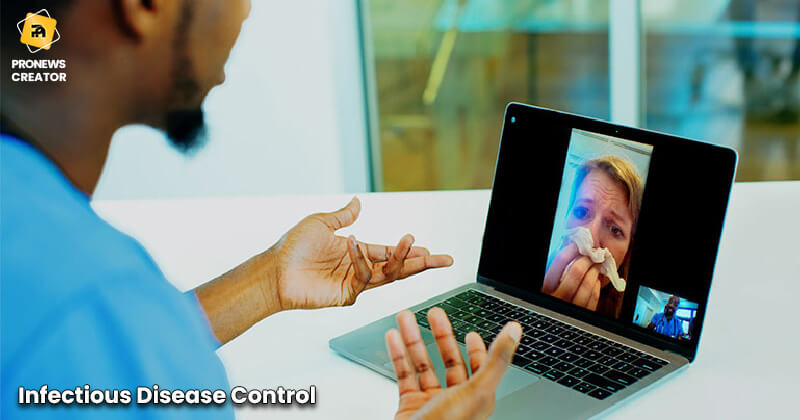
4. Primary Care
Frequent visits to primary care practitioners, such as those specialized in family medicine, internal medicine, and paediatrics, are critical to the health of everyone. Telemedicine facilitates communication with a doctor or nurse practitioner.
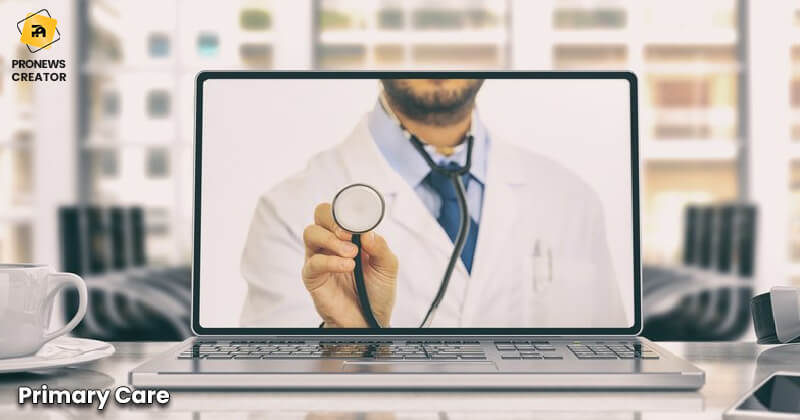
5. Suitable for follow-up visits
Doctors often wish to see their patients for a follow-up appointment after surgery or medical treatment to check on the patient’s progress. These visits are simple to arrange online or by phone.

6. Home physical therapy
Telemedicine allows physical therapists to watch and view exercises and therapies performed using home assistance for persons undergoing physical therapy. It can help patients recover from accidents and surgery faster.

7. Private and secure
The technology utilized for telemedicine appointments is secure and respects patient privacy. Furthermore, this technology ensures that patients receive their doctors’ undivided attention.
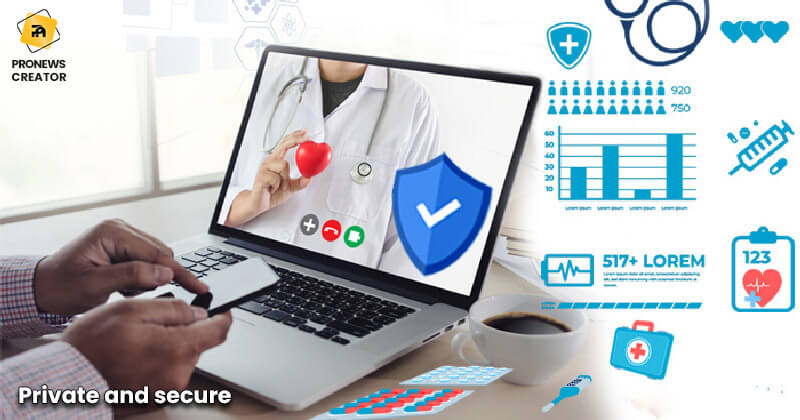
8. Improve Patient Fulfillment
Clinics are revolutionizing patients’ clinical experiences by making health care more accessible and efficient. Patients can take control of their treatment programs via self-help choices. It increases patient happiness.

9. Convenience and ease
You don’t have to travel to the doctor’s office or clinic, park, stroll, or sit in a waiting room when ill. You can consult with your doctor while lying on your bed or sofa. Virtual visits might be more convenient to fit into your hectic schedule.
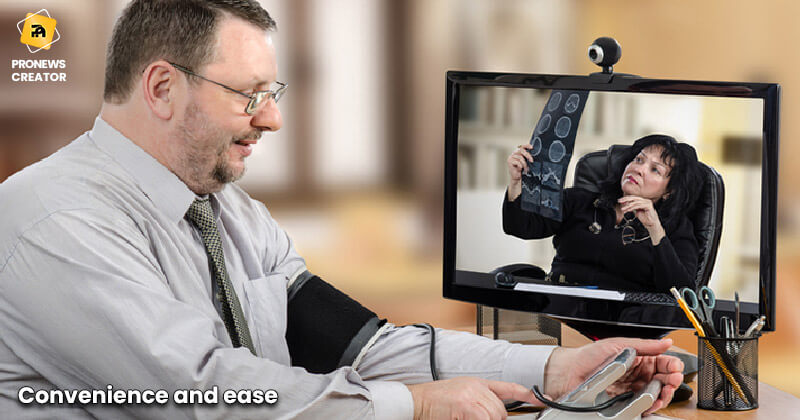
10. Peer-to-Peer assistance
Online therapist-led support groups have brought people together to deal with difficulties such as loss or infertility.
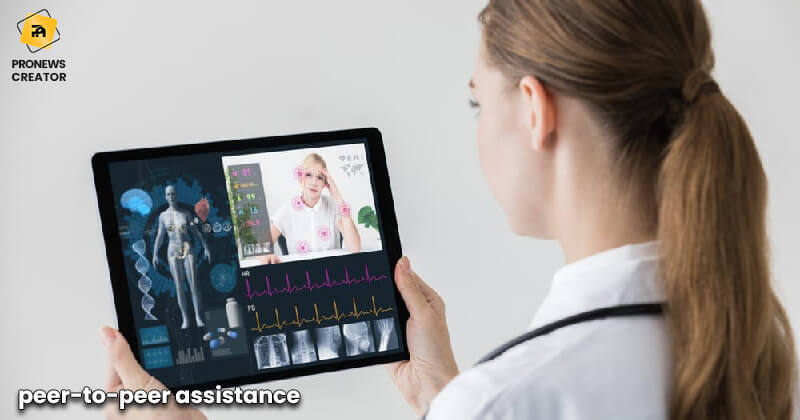
11. Family Relationships
When meeting with your doctor, it’s always a good idea to bring along a family member who can help you provide information, ask questions, and record your doctor’s responses.
If that individual lives out of town or even across the nation, it can bring them in for a virtual visit if you authorize it.

12. Online psychiatric assistance
COVID-19 has made it impossible for many people to meet with therapists in person. Telemedicine has enabled persons suffering from stress, anxiety, depression, and other mental health concerns to begin or continue receiving therapeutic therapy.

13. Better Evaluation
Some speciality practitioners may benefit from telemedicine because they can see you in your home environment. Allergists, for example, may be able to detect triggers in your environment that cause allergies.
Neurologists, physical and occupational therapists, and others can monitor and evaluate your capacity to navigate and care for yourself at home.

14. No need to bear time off from work
Travelling to a clinic can be time-consuming, requiring people to take a day off work or forego their lunch break. Telemedicine visits are helpful when a patient requires an urgent consultation with a physician but is unable to take time off from work.
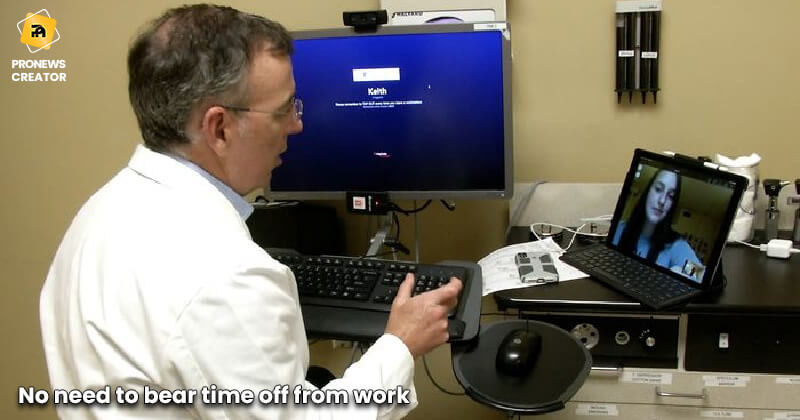
15. No requirement for childcare
Parents get sick, too, and taking little children to the doctor can be difficult. Telehealth avoids both this requirement and the additional cost of childcare.

16. Rural residents’ access to medical care
Country life has many advantages, but quick access to medical treatment is not necessarily one of them. Telemedicine allows patients living away from the nearest medical institution to visit a doctor quickly.
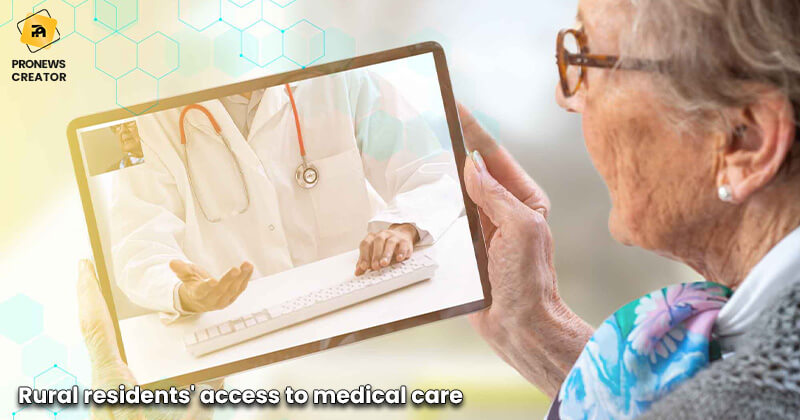
FAQs
How do you locate a telemedicine provider?
A fast online search can bring up telemedicine companies where you can schedule an appointment.
If you have health insurance, your provider’s website may have a list of approved telemedicine practitioners.

What you can do for Telemedicine?
You can also use the Telemedicine method to:
• Pre-submit your prescription list, allergies, ID cards, and medical record
• Talk or share photos detailing your symptoms
• Have prescriptions electronically transmitted to your pharmacy.
• Pay for your virtual visit securely online.

What Are Telemedicine’s Future Trends?
Telemedicine’s future appears to be exciting and full of potential. Telecommunication and telemedicine benefits will proliferate with the emergence of sophisticated communications equipment.

Conclusion
Telemedicine is a means of delivering medical care over the Internet, typically via video chat.
Telemedicine has numerous advantages for both patients and healthcare practitioners.
People have been taking benefit from it for decades, but it has gained popularity due to the COVID-19 pandemic.
Telemedicine does not replace in-person appointments but can be a valuable supplement to patient care.


